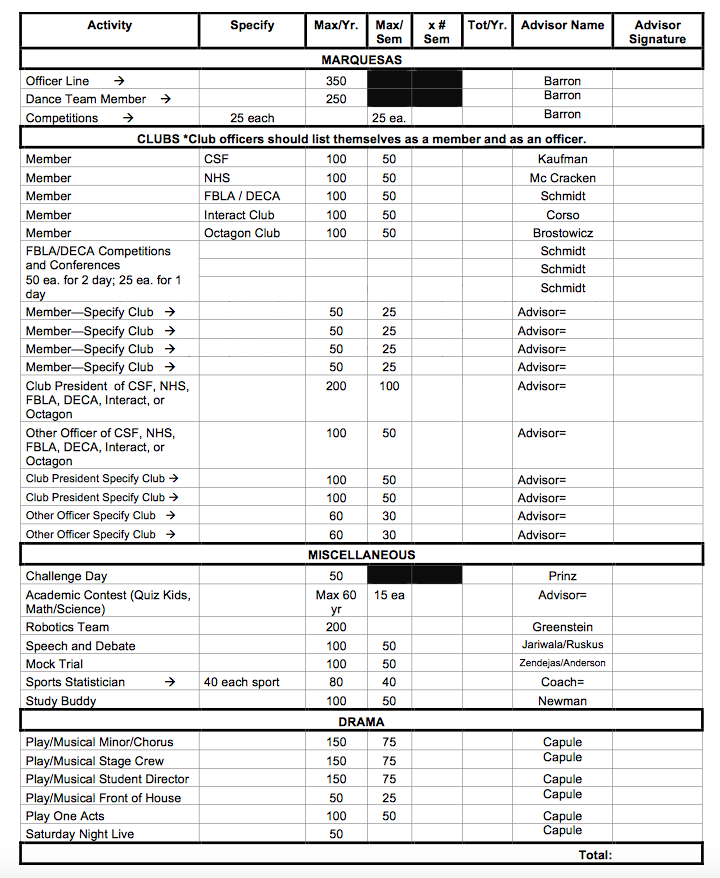Co-written by Amita Mahajan.
A stream of students poured into the office on April 27 to turn in sheets of paper covered in numbers, checkmarks and calculations scribbled on the side. Over the past few weeks, students went from teacher to teacher across campus to receive confirmation for their activity points.
Activity points were made by administration to reward students for their involvement and hard work outside of the classroom. But they’re turning students’ focus toward simply participating instead of the extent of their participation.

Even if this was not the original intention, activity points are passively valuing some activities over others, and this may cause students to neglect their true interests for more acceptable and quantifiably rewarding clubs. Officers of DECA and Octagon, for example, receive a maximum of 100 points per year compared to officers of other clubs who receive a maximum of 60 points.
We can count how many events we’ve been to and how much time we spent doing a certain activity, but experience can’t be quantified. What we learn and what we contribute to the clubs that we are a part of are worth so much more than numbers. Our clubs are defined by what we take away from our club and the effort we place into them, regardless of our position within the club. Trying to narrow experiences down and counting activity points only deludes us into believing that numbers determine our accomplishments.
Yes, we still fill out our activity points sheets even if we don’t support the system. We may do it because we don’t want to feel like we are at a disadvantage because our friends are doing it. But this only takes backwards steps in decreasing the numbers-oriented culture present in our school. Activity points once again gear us toward quantified achievements.
Continuing activity points simply because they are a tradition is not a valid reason for keeping them. MVHS needs to take action on activity points, either by allocating an equal amount of points to a position—regardless of the club—or removing activity points entirely. Maintaining a program for the sake of tradition can be more detrimental than rewarding.
Valuing students more for attending a tournament for a particular club instead of another reduces the achievement of kids who still represent MVHS at other locations. It’s wrong to give the implication that some forms of participation and representations of MVHS are more worthy than others. And on top of that, activity points place more emphasis on simply attending an event or having an impressive position in a club than on the genuine experiences and knowledge we acquire. There’s no guarantee that a certain role deserves a set reward, because our contributions are all different.
Activity points are futile at categorizing clubs and our achievements. Our experiences simply cannot be measured through numbers.







